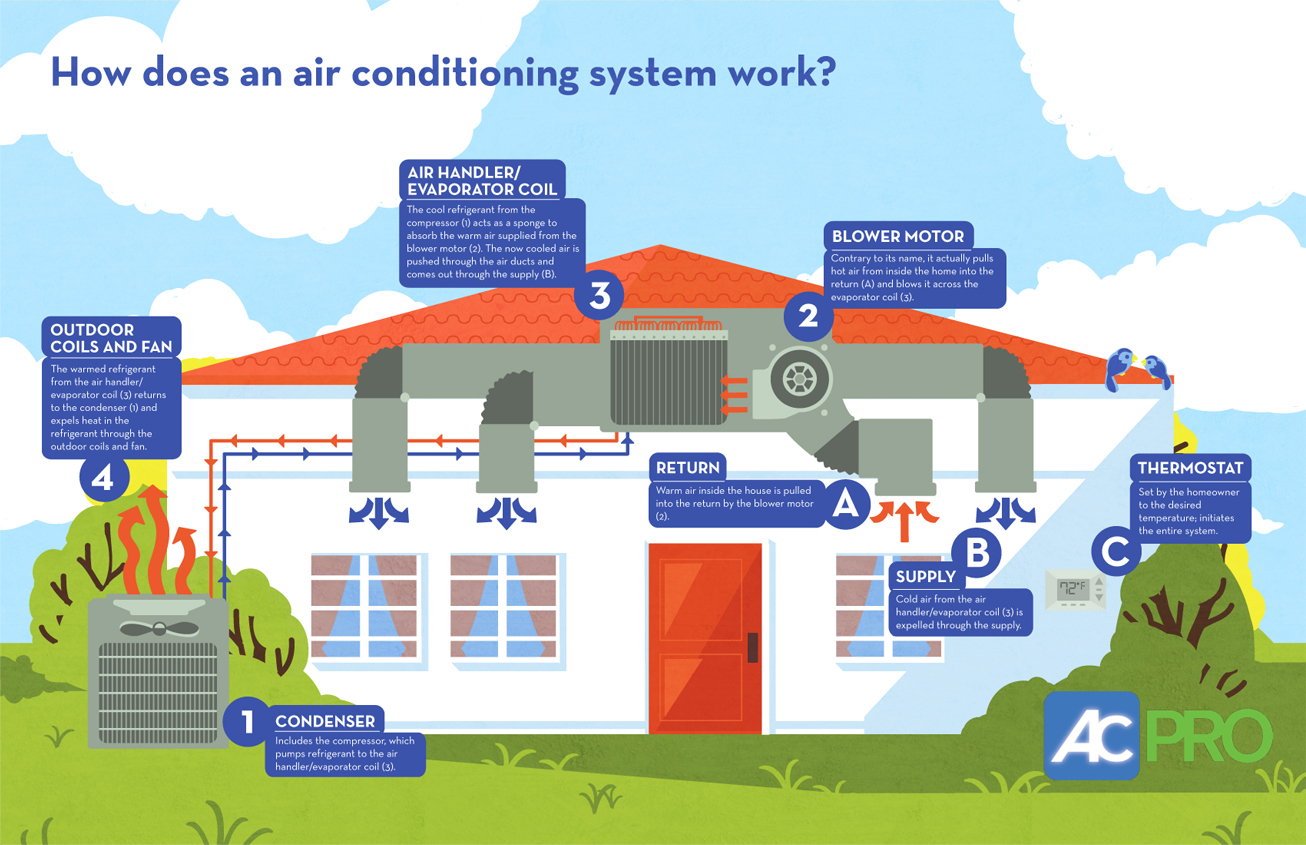
Till a few years back, air conditioners were a luxury that was only available to a select few. However, with ACs becoming more affordable over the past decade or two, it is now difficult to encounter a living space without one. According to a US government census report, close to 89% of newly constructed single family homes in the country are equipped with an air conditioner. This is a rapid rise from the 1970s when less than half the households had an air conditioner.
 This increasing presence of air conditioners in our lives has thrown up a health challenge – is the air that we breathe today healthier than earlier times? At first thought, it definitely seems so.
This increasing presence of air conditioners in our lives has thrown up a health challenge – is the air that we breathe today healthier than earlier times? At first thought, it definitely seems so.
With closed living spaces that use air conditioners to maintain a cool temperature, the air that we breathe inside our homes or offices seem healthier than the air that we breathe outside which is full of carbon monoxide emitted by the vehicles on the road.
However, while there is no denying the fact that air that we breathe on the urban streets is pretty dangerous and carcinogenic, the air that bypasses the particulate filters that are fitted on air conditioners is no less dangerous.
How AC Works
Before we go ahead and understand the hazards, it is important to know how an air conditioner works. A centrally air conditioned set-up contains a condenser and a blower. The job of a condenser is to pump the refrigerant into an evaporator coil where it acts as a sponge to absorb all the warm air letting only the cooled air to release into the living room duct.
The blower, on the other hand, pulls the hot air from inside the living room and passes it to the evaporator coil where it is processed with the refrigerant passed from the condenser. The heat that is absorbed in the evaporator is expelled via the outdoor fans and coils. Here is an infographic that explains the process in visual detail:
So as you can notice from the infographic above, the air conditioner works by circulating the air through a series of tubes that can, over a period of time, provide the right temperature and conditions for the growth of harmful microorganisms.
Symptoms of Occupants of Air Conditioned Buildings
In a study published on the Oxford Journals, it was reported that a general survey of occupants of air conditioned buildings revealed a higher percentage of people with symptoms such as follows:
- mucous membrane irritation
- breathing difficulties
- irritated skin
- headache and fatigue
The scientists call this a ‘sick building syndrome’ and claim that the source of this health issue is due to the moisture in air circulated by air conditioner and humidification systems.
Another test carried by the same scientists revealed that the moist environment on air conditioned systems such as cooling coils and drip pans nurture the growth of extremely harmful microbes that can cause illnesses like hypersensitivity pneumonitis.
The study concluded that the use of air conditioning at work places has contributed to a 120% increase in visits to ENT-doctors and a 40% increase in sickness reported by employees.
Given the fact that air conditioners have completely proliferated into our everyday living and work spaces, it is not possible to stay away from one.
However, with proper maintenance and care, scientists say the air from an AC can be kept clean and healthy for the occupants. The US Department of Energy has recommended a number of important measures that will help us keep the air from an air conditioner clean. Here are two important recommendations to keep you safe from the hazards of air conditioning.
Clean the Filters
The air filters in an AC are responsible for preventing dust particles from entering the ambient space. Because of the purpose it serves, the air filters often get clogged with dirt that cause the growth of harmful microbes.
Periodically replacing the filters not only makes the air healthy, but also improves the energy efficiency of the AC.
Replace the Coils
Like the air filter, the condensor and evaporator coils too gather significant amount of dirt over a period of time. Add to this, the moisture in the system, and the coils are a vibrant ecosystem of harmful microorganisms.
Replacing these coils every few months is extremely critical to staying healthy.
The bottomline is this – your air conditioner is a hotspot for the growth and sustenance of disease-causing microbes. Proper cleaning and maintenance will ensure that the air that passes through this system is not contaminated with these harmful organisms that can serve as a health hazard.
(Anand is a software developer by day and a health blogger by night. He graduated in Mechanical Engineering where he specialized in the area of refrigeration systems. His interest in health blogging started after he read an article that claimed that we are more likely to die of a mosquito bite than from a road accident. He may be reached via his Google+ profile here.)



Yes, unclean air conditioner system may cause many health problems. The only way to prevent such health issues is to regularly check and clean the air conditioners. It is necessary to check the run-time, foul odor or water leakage from the air conditioner. It is a must to change the filter of the air conditioner after every few months.